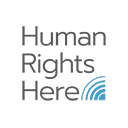[Research Workshop] Responding to Eco-Anxiety and Climate Trauma: First Steps for Human Rights Researchers and Educators
Published 18 September 2025
Credits: Photo by Elisa Photography via Unsplash.
Eco-anxiety is a growing challenge facing professionals working on climate-related issues, including researchers and educators. The mental health impacts of the climate crisis are widely recognised and have been documented by numerous scholarly studies. For students and young people in particular, anxiety related to the climate crisis is likely to increase following the political victories of anti-climate actors, the withdrawal of the USA from the Paris Agreement, and the fact that the 1.5°C warming limit has already been exceeded. This will only be exacerbated as the impacts of the climate crisis – including wildfires, droughts and extreme weather events – become increasingly part of our lived experiences and our news media.
The research workshop “Responding to Eco-Anxiety and Climate Trauma: First Steps for Human Rights Researchers and Educators” address these challenges, helping participants to develop personal and collective strategies for dealing with eco-anxiety in human rights research and education. The workshop is organized by Samuel Ballin (Radboud University), David Patterson (University of Groningen), and Monique van Cauwenberghe (University of Groningen), and facilitated by Iline Ceelen and Sanneke Bolhuis.
Details
- Date: Thursday 16 October 2025
- Time: 13.00-17.00 (with optional self-funded lunch 12.00-13.00)
- Location: Radboud University Nijmegen, Grotiusgebouw Room 2.130
Workshop Description
The workshop begins by helping participants to recognise some of the signs and impacts of eco-anxiety and secondary traumatic stress, which may already be affecting many of us, our students and colleagues in ways we do not fully appreciate. There is a significant body of established knowledge regarding the mental health risks for researchers due to ‘secondary traumatic stress’ or ‘vicarious trauma’ when working in extreme situations (such as disasters or conflict zones) and/or with vulnerable subjects. The long-term implications of doing such research has led some (particularly in health and social sciences) to develop tools and practices to support students and researchers and to mitigate the risk of negative impacts, but this is not yet common in human rights or the wider legal field. This session will help participants in making a current and future assessment of their well-being and the need for further support.
The second session offers participants some tools to deal with negative psychological impacts when we do experience them. An important part of this is allowing participants to share and discuss their negative emotions around human rights and the climate crisis, which are rarely given serious attention in academic spaces. Joanna Macy’s ‘active hope method’ was developed in the USA to help activists and others grappling with negative emotions and hopelessness around the climate crisis. ‘Active hope’ comprises four stages: gratitude; honouring our pain; seeing with new eyes; and going forth. Iline Ceelen will facilitate this session to provide some guidance and basic tools in working through all four stages, focusing in particular on the importance of ‘honouring our pain’.
The third session turns our attention towards the classroom, considering ways to identify (or even pre-empt) ‘hot moments’ and difficult emotions in teaching and learning about climate change, and some ways to deal with these. This is necessary because students in some legal courses have reported negative psychological impacts and a sense of being overwhelmed by the scale of the crisis and its impacts. This session will be facilitated by KlimaatGesprekken, a volunteer-based organisation which aims to help people in having group discussions and conversations around climate change. As they describe, KlimaatGesprekken ‘use insights from climate psychology to offer people hope, humor and perspective for action’. Sanneke Bolhuis has particular expertise and interest in addressing the challenges of tertiary and professional education, and will facilitate this session.
The afternoon will conclude with a shorter session to reflect on the outcomes of the workshop and the on-going role that the working group can play in supporting its members (and other researchers/educators) working on human rights and climate change. This session will take the form of an open discussion, facilitated by Monique van Cauwenberghe and Samuel Ballin.
The workshop will equip participants with the following strategies to deal with eco-anxiety:
- Better recognising the signs and impacts of eco-anxiety and secondary traumatic stress.
- Identifying techniques and strategies on a personal level to manage our own eco-anxiety as human rights researchers and educators.
- Identifying techniques and strategies as teachers to manage and respond to the climate-related emotions of our students.
- Identifying tools and strategies needed to support others working on human rights and the climate crisis as a working group and a community of practice.
Programme
12:00 – 13:00 | Self-Funded lunch on Radboud University campus
13:00 – 14:00 | Session 1: Recognizing the signs and impact of eco-anxiety
14:15 – 15:15 | Session 2: Identifying techniques to manage eco-anxiety on a personal level: group discussion using Macy’s ‘active hope method’
15:30 – 16:30 | Session 3: Eco-anxiety and difficult emotions in the classroom
16:40 – 17:00 | Closing and reflection
Registration
Registration is open to all NNHRR members, first come first served. NNHRR members may also request reimbursement for their travel costs. The deadline for registration is 6 October 2025.
Please register here.


